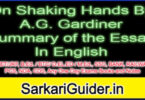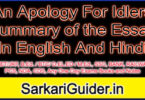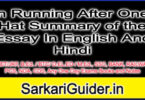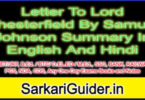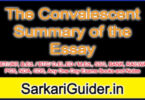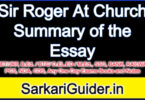Definition of Poetry And Elements of Poetry
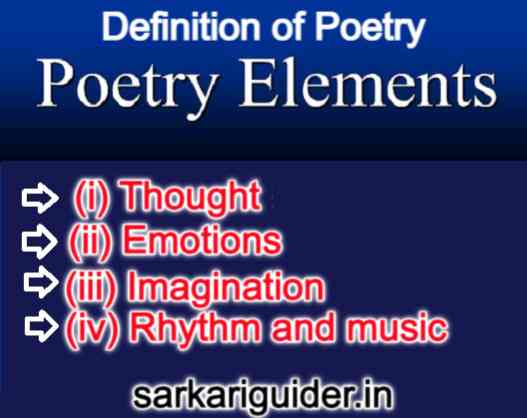
Definition of Poetry And Elements of Poetry
Q. Define Poetry and give its constituent elements.
Introduction –
Definition of Poetry And Elements of Poetry – There are several branches of literature. They are Poetry, Drama, Novel, Short story and Essay etc. of these poetry is the oldest and the most respectable. It was held in highest esteem by the scholars and the lay man alike. It was said to be of divine origin. Poets felt that they did not compose the poems but only transcribed something which was dictated to them by the Muses. They were regarded as agents of some divine power. In the earlier epochs of the world the poets were called sages, prophets and lawgivers. They were the guardians of the religion and culture expressed the external truths in the particular context. They lifted the veil from the hidden beauty of the world and made familiar objects as if they were unfamiliar. They expressed the external truths, psychological, moral and spiritual in the beautiful and appealing manner. In poetry truth appear dyed in beauty. So it touches the heart of the listeners and imperceptibly affected their conducts and lives. This accounts for the greatness of poetry in all countries and in all ages.
Definition –
According to Aristotle poetry is the imitation of life, of human actions, passions and Character in rhythmical and musical and figurative language. It forms the basis of all the definitions of poetry that have been given by the poets and critics since then. The word ‘imitation’ has been interpreted so as to mean, recreation, representation, interpretation, criticism. Mathew Arnold a modern critic defines poetry “as a criticism of life under the conditions fixed for such a criticism by the laws of poetic truth and poetic beauty”. He also defines poetry as the application of ideas of the life and in poetry emotion is attached to idea. In poetry feelings colour the thoughts and give it a new form or intensity and meaning. That is why Wordsworth defines poetry as “the takes its origin from emotion recollected in tranquillity”. Shelley defines poetry as “the expression of imagination. Poetry is not only passionate though. In it feelings and thoughts are fused by imagination and given a wider amplitude by imagination. That is why Shakespeare says that the lover, the lunatic and the poet are of imagination all compact. Imagination is the creative element which as Coleridge puts it “diffuses a tone and a spirit of unity, that blends and fuses each into each by the synthetic and magical power.” Poetry has also been defined as ‘metrical composition’. Metre is one of the commonest elements by which we recognize poetry and distinguish it from prose. Though most poetry is written in verse all verse is not poetry. All poetry is not metrical. Yet metre has one thing which poetry must have i.e. rhythm. That is why Edgar Allen Poe defines poetry as “the rhythmic creation of beauty”. And Carlyl defines it as “musical thought.”
Elements of Poetry –
From the foregoing definitions we can find out the essential elements or its components parts or ingredients.
(i) Thought –
Poetry imitates life. That is to say it gives us a true picture of life. it embodies the essence of the truth about life and human nature which the poet has observed and thought about. In the words of Mathew Arnold it is the “application of ideas to life” it contains thoughts which are the outcome of reason.
(ii) Emotions –
But these thoughts are combined with or fused with teelings. Poetry is the spontaneous overflow of powerful feelings says Wordsworth. Mere ideas or thoughts would not make poetry. If they alone could make poetry then thinkers and philosophers would be the greatest poets. But they are not. This proves the importance of feeling as one of the basic elements of poetry. Truth to life – faithful imitation of Nature – human and external nature, important thoughts on life can lay claim to the status of poetry only when they are modified by a predominating passion. That is why poetry has been called impassioned thought.
(iii) Imagination-
The Third important component of poetry is ‘Imagination’. Poets have been also called dreamers. They are highly imaginative. Imagination reveals new truth or shows the old truths in new forms. It gives to airy nothings a local habitation and a name. Dr. Johnson calls poetry “the art of uniting pleasure with truth by calling imagination to the help of reason”.
(iv) Rhythm and music-
The fourth important element of poetry is rhythm or music. Poetry is not merely impassioned speech or thought or imaginative picture of life. Poetry is also figurative and rhythmical speech of mankind in which he utters his inmost thoughts and feelings. Carlyle laid stress on this element when he defined poetry as ‘musical thought, and Poe stressed its importance in poetry when he defined it as the “rhythmic creation of beauty”. Poetry is beautiful and harmonious utferance. In the words of George Santayana “poetry is speech in whch the intrument counts as well as the meaning – poetry is speech for its own sake and for its own sweetness”. Poetry is closest to music among the arts. It is harmony of sounds with meaning added to it. To achieve this end of sweetness, poetry takes the help of metre, rhythm and rhyme. There may be poetry which- may lack metre and rhyme. But no poetry can dispense with rhythm. Most poetry is metrical and a lot of its makes use of rhyme. Rhyme and metre though not essential, and to the pleasure and charm of poetry.
Important links
What Is Narrative Poetry? and what are their chief characteristics?
What is poetry? What are its main characteristics?
What is a lyric and what are its main forms?

